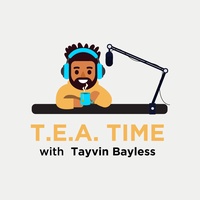Busca entre varios profesores de Inglés...
I share a story of an experience I had trying to visit Osaka castle in Japan.
You can read the transcript here: https://drive.google.com/file/d/1pp0yIH4MvNIXwfu6QhTd7CBlbGHVZ5-V/view?usp=sharing
My teacher profile on iTalki: www.italki.com/teacher/2889545
My Twitter Profile: https://twitter.com/TEA_Time_Tayvin

Journey to the castle
29 de marzo de 2022
1
4
Mostrar más
Selección del editor

Santa, St. Nicholas, or Father Christmas? How Christmas Varies Across English-Speaking Countries
6 votos positivos · 4 Comentarios

11 Portuguese Superstitions You Should Know
3 votos positivos · 0 Comentarios

The Subjunctive: The Art of What Might Be
5 votos positivos · 0 Comentarios

3 K-Contents So Addictive, You'll Forget to Read the Subtitles!
0 votos positivos · 0 Comentarios

Reflecting on Your Progress: Year-End Language Journal Prompts
5 votos positivos · 2 Comentarios

5 Useful Italian Phrases You’ll Use Every Day in Italy
1 votos positivos · 0 Comentarios

Speak Like a Local: The French Idioms That Bring the Language to Life
5 votos positivos · 0 Comentarios

Italian Reflexive Verbs: What they are and how to use them
3 votos positivos · 0 Comentarios

Christmas in France: A Blend of History, Tradition, and Modern Warmth
12 votos positivos · 7 Comentarios

A Taste of Christmas: Traditional Holiday Dishes Around Portugal
8 votos positivos · 5 Comentarios
Más artículos




